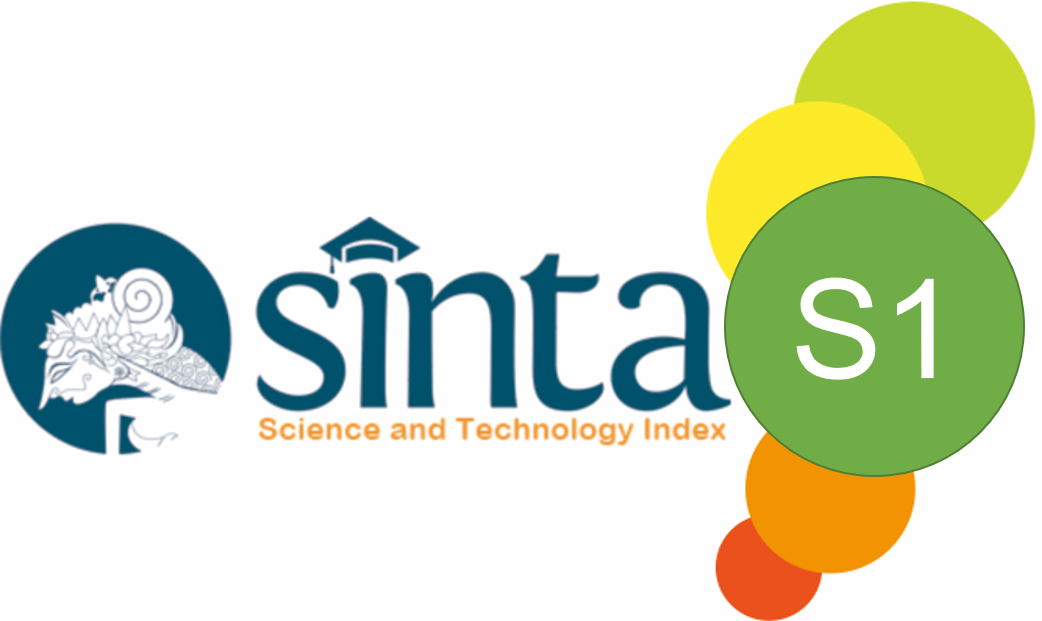Green Skills Understanding of Agricultural Vocational School Teachers around West Java Indonesia
Abstract
This study investigated understanding of agricultural vocational school teachers about green skills and its entity in the curriculum. Data were gathered through survey of teachers from fifteen agricultural vocational high school of agricultural food processing technology study program in West Java Province, Indonesia regarding their understanding about green skills. The results showed that the teachers had less knowledge of green skills, limited to environmental issues. However, they agreed that students needed to be equipped with green skills. The entity of green skills has not been stated explicitly in the curriculum of agricultural vocational school. However, the teachers argued that green skills could be embedded in the subjects of the existing curriculum. The findings of this preliminary study indicated the need to increase teacher understanding of green skills and curriculum development in agricultural vocational schools to meet industrial needs in order to support sustainable development in accordance with the UNESCO strategy for vocational education.
Keywords
Full Text:
PDFReferences
Acedo, C. (2014). Skills for inclusive and sustainable development: Perspectives from the Asia Pacific region and beyond. Springer.
Ali, M. (2019). Research Methods in Sustainability Education. UPI Press.
Arasinah, K., Mustapha, R., Waliza, A. B., & Bushra Limuna, I. (2016). Green Skills as an add-ed-value element in producing competent students. International Journal of Engi-neering Research and Applications, 6(11), 12-21.
Arunkumar, J. (2012). A study on assessment of environmental awareness among teacher trainees in teacher training institutes. International Journal of Research in Social Sci-ences, 2(3), 312.
Asnawi, R., & Djatmiko, I. W. (2015). A Challenge of Vocational Education for Preparing Green Employment. In 3rd UPI International Conference on Technical and Vocational Education and Training. Atlantis Press.
CEDEFOP (2010). Skills for Green Jobs: European Synthesis Report. Luxemburg: Publication Office of the European Union
Cohen, L., Manion, L., & Morrison, K. (2017). Research methods in education. London, UK: Taylor and Francis.
Cresswell, J. W., (2003). Qualitative, Quantitative and Mixed Method Approaches. 2nd ed. London: SAGE publications.
Fereday, J., & Muir-Cochrane, E. (2006). Demonstrating rigor using thematic analysis: A hy-brid approach of inductive and deductive coding and theme development. Interna-tional Journal of Qualitative Methods, 5(1), 80-92
Fogarty, R. (1991). Ten ways to integrate curriculum. Educational leadership, 49(2), 61-65
Howes, S. & P. Wyrwoll (2012), ‘Asia’s Environmental Problems: Common Features, and Pos-sible Solutions’, in Zhang, Y., F. Kimura and S. Oum (eds.), Moving Toward a New De-velopment Model for East Asia- The Role of Domestic Policy and Regional Coopera-tion. ERIA Research Project Report, 55-120.
Indonesia Encourages ASEAN to promote Green Jobs. (2018, December 4). The Jakarta Post. Retrieved from https://www.thejakartapost.com/adv/2018/12/04/indonesia-encourages-asean-to-promote-green-jobs.html
Jahonga, W. M., Ngore, P. R., & Muramba, V. W. (2015). Tranforming and greening TVET for sustainable development in Western Kenya. European Journal of Research and Reflection in Management Sciences, 3(2).
Kamis, A., Alwi, A., & Yunus, F. A. (2017). Integration of Green Skills in Sustainable Develop-ment in Technical and Vocational Education. Int. Journal of Engineering Research and Application, 7(12), 08-12.
Kamis, A., Rus, R. C., Rahim, M. B., Yunus, F. A. N., Zakaria, N., & Affandi, H. M., (2017). Ex-ploring Green Skills: A Study on the Implementation of Green Skills Among Secondary School Students. International Journal of Academic Research in Business and Social Sciences, 7(12). 327-345.
Koulaouzides, G. A., Acker, D., Vergos, E. A., & Crunkilton, J. R. (2003). Innovative agricultur-al education curriculum practices promote sustainability in the Balkan region of south-eastern Europe. Journal of International Agricultural and Extension Educa-tion, 10(1), 73-80.
Maclean, R. (2017). Education and Skills for Inclusive Growth, Green Jobs and the Greening of Economies in Asia–Case Study Summaries of India, Indonesia, Sri Lanka and Viet Nam. Asian Development Bank.
Majumdar, S. (2009). Major Challenges in Integrating Sustainable Development in TVET. Pa-per presented in the UNESCO-UNEVOC/CPSC/INWENT International Experts Meeting on “Reorienting TVET Policy towards Education for Sustainable Development”. Ber-lin, CPSC, Manila
Ministry of Education and Culture. (2013). Minister of Education and Culture Regulation Number 70 of 2013, Basic Framework and Curriculum Structure of Vocational High Schools. State Gazette of the Republic of Indonesia, Jakarta.
Murati, R. (2015). The Role of The Teacher in The Educational Process. The Online Journal of New Horizon in Education, 5(2), 75-78.
Nagra, V., & Kaur. R. (2014). Environmental education awareness and ecological behaviour of school teachers. Asian Journal of Multidiscipinary Studies, 2(11), 36-43.
Pavlova, M. (2014). Greening of skills in Asia: Agenda for green growth and challenges of skill gaps. Continuous education for sustainable development, Pushkin Leningrad State University (LSU).
Pavlova, M. (2017). Green skills as the agenda for the competence movement in vocational and professional education. In Competence-based Vocational and Professional Educa-tion, 931-951.
Pavlova, M., & Huang, C. L. (2013). Advancing employability and green skills development: Values education in TVET, the case of the People’s Republic of China. In Skills Devel-opment for Inclusive and Sustainable Growth in Developing Asia-Pacific, 327-343.
Permatasari, N., Sucahya, T. N., & Nandiyanto, A. B. D. (2016). Agricultural wastes as a source of silica material. Indonesian journal of science and technology, 1(1), 82-106.
Ramli, S., Rasul, M. S., & Affandi, H. M. (2018). Sustainable Development: Needs of Green Skills in the Fourth Industrial Revolution (4IR). International Journal of Academic Re-search in Business and Social Sciences, 8(9), 1082–1095.
Setiawan, A. (2017). Identification of green skills acquisition in Indonesian TVET curricula. In AIP Conference Proceedings, 1887(1).
Strietska-Ilina, O., Hofmann, C., Haro, M. D., & Jeon, S. (2012). Skills for green jobs: A global view. Geneva: International Labour Organisation.
Sulastri, A., & Rahmidar, L. (2016). Fabrication of Biomembrane from Banana Stem for Lead Removal. Indonesian journal of science and technology, 1(1), 115-131.
Tiwari, B. K., Norton, T., & Holden, N. M. (Eds.). (2013). Sustainable food processing. John Wiley & Sons.
Yapin, H., Suhadi, N., & Esa, A.(2017). Implementation of Green Skills through the co-curriculum activities among students Technical and Vocational Education Training (TVET) towards development of Green Industry. Elixir Soc. Sci., 107(2017), 47295-47297
Zaituni , F., Samuel, A.R., Imelda, H., Tanujaya, O. (2010). Skills for green jobs in Indone-sia. ILO, Geneva, Switzerland.
Zolkifli, H., Kamin, Y., Latib, A. B. A., Buntat, Y., & Awang, Z. (2016). Generic Green Skills: Industry and perspectives on technical education and vocational training (TVET). TVET@ Asia, 6, 1-13.
DOI: https://doi.org/10.17509/ijost.v5i1.22897
Refbacks
- There are currently no refbacks.
Copyright (c) 2020 Indonesian Journal of Science and Technology

This work is licensed under a Creative Commons Attribution-ShareAlike 4.0 International License.
Indonesian Journal of Science and Technology is published by UPI.
View My Stats




















